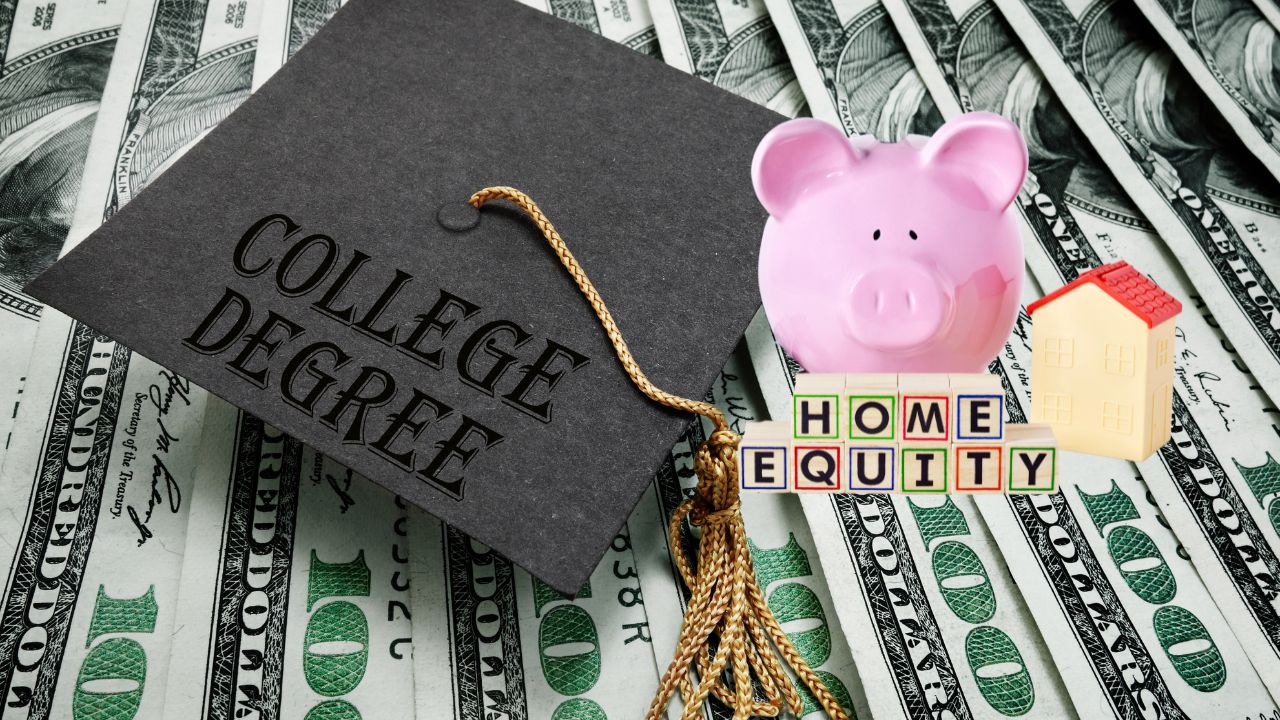 Higher education can be one of the most significant financial investments you’ll make, second only to purchasing a home. While federal loans are a common method for covering college costs, using your home’s equity is another option to consider. Before making a decision, it’s important to understand the pros and cons of tapping into your home equity to pay for college.
Higher education can be one of the most significant financial investments you’ll make, second only to purchasing a home. While federal loans are a common method for covering college costs, using your home’s equity is another option to consider. Before making a decision, it’s important to understand the pros and cons of tapping into your home equity to pay for college.
The Financial Cost of College
Just as most buyers need a mortgage to finance a home, many families rely on loans to fund college expenses. The average net price of college, which accounts for tuition, room, and board after financial aid, can be significant. According to the College Board, during the 2019-2020 school year, the average annual net price was $27,400 for private colleges and $15,400 for public institutions.
Advantages of Using Home Equity for College
For families exploring ways to pay for college, home equity loans or Home Equity Lines of Credit (HELOCs) may present some unique benefits.
1. Bridging the Gap Beyond Federal Loans
Federal loans often have borrowing limits that may not fully cover the cost of tuition, room, and board. Home equity loans can help close the gap. You can typically borrow up to 85% of your home’s equity as either:
-
A Lump-Sum Loan: A fixed amount borrowed with regular monthly payments.
-
A HELOC: A revolving line of credit with variable interest rates, offering more flexibility.
2. Lower Interest Rates
Home equity loans usually have lower interest rates compared to federal PLUS loans or private student loans. Since these loans are secured by your home, lenders can offer more favorable rates, saving you money over the life of the loan.
3. Immediate Access to Funds
Home equity loans or HELOCs allow quick access to funds, making them ideal for unexpected expenses or semester payments. A HELOC, in particular, offers flexibility by allowing you to borrow only what you need, reducing the amount of interest you pay. For example, if you open a $50,000 HELOC but use only $20,000, you’ll owe interest only on the $20,000, potentially saving you money.
Disadvantages of Using Home Equity for College
While there are advantages, it’s equally important to consider the potential downsides of using home equity for education costs.
1. Risk of Losing Your Home
Since your home serves as collateral for a home equity loan or HELOC, failure to make payments could result in foreclosure. Unlike federal student loans, which do not jeopardize your home, defaulting on a home equity loan carries significant risks. Carefully evaluate your financial situation before proceeding.
2. Limited Tax Benefits
The Tax Cuts and Jobs Act of 2017 eliminated the tax deduction for home equity loan interest unless the funds are used to improve your home. This means you cannot deduct home equity loan interest used for education expenses. In contrast, federal or private student loans may qualify for a Student Loan Interest Deduction of up to $2,500 annually.
3. Long-Term Financial Impact
Using home equity for college ties up a major asset that could otherwise be used for emergencies, retirement, or other future needs. It’s important to weigh whether reducing your home equity is worth the potential long-term financial impact.
Making the Right Decision
If you or your child are preparing for college, now is the time to explore your financing options. Home equity loans can be a viable choice for covering education costs, especially if:
-
Federal loans don’t meet your needs.
-
You’re confident in your ability to make payments.
-
You prefer lower interest rates and flexible borrowing options.
However, weigh the risks carefully, particularly the potential impact on your home and finances. Speak with a financial advisor or lender to determine whether using your home equity aligns with your overall financial goals.
 When it comes to buying a home, selecting the right mortgage is one of the most important financial decisions you’ll make. The type of loan you choose will impact your monthly payments, interest rates, and overall financial stability. To make the best choice, it’s essential to understand the different types of mortgages available and how they align with your financial goals and circumstances.
When it comes to buying a home, selecting the right mortgage is one of the most important financial decisions you’ll make. The type of loan you choose will impact your monthly payments, interest rates, and overall financial stability. To make the best choice, it’s essential to understand the different types of mortgages available and how they align with your financial goals and circumstances.